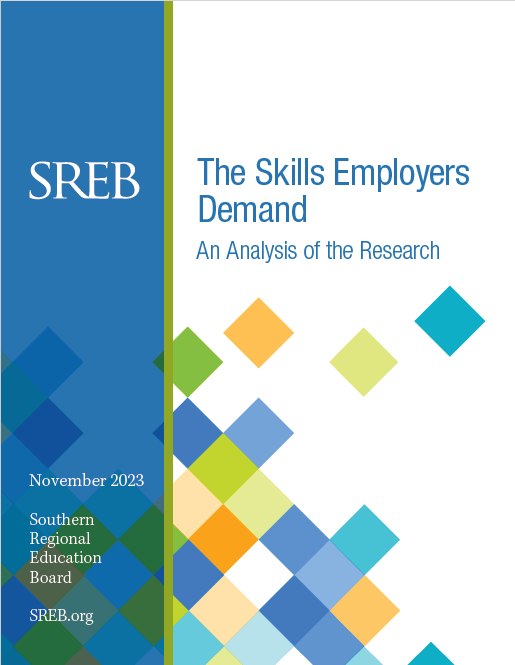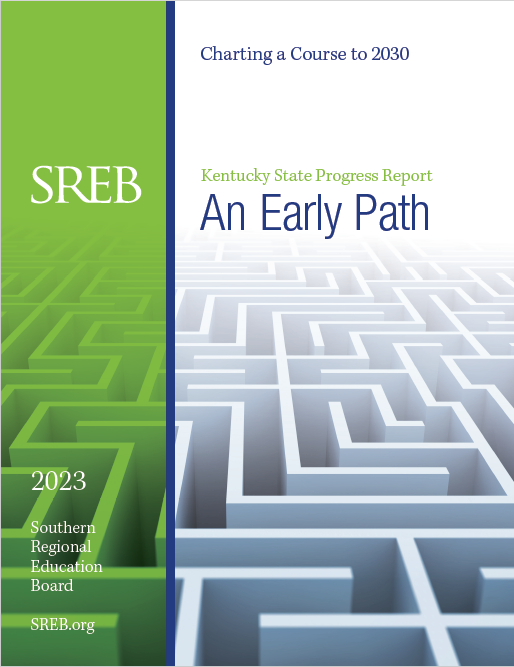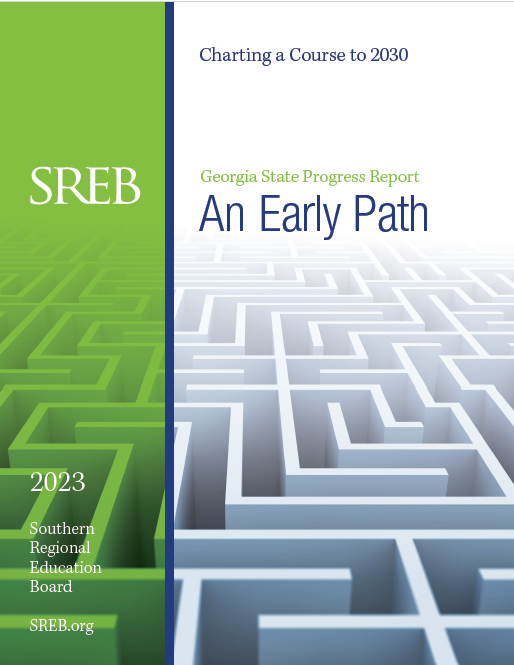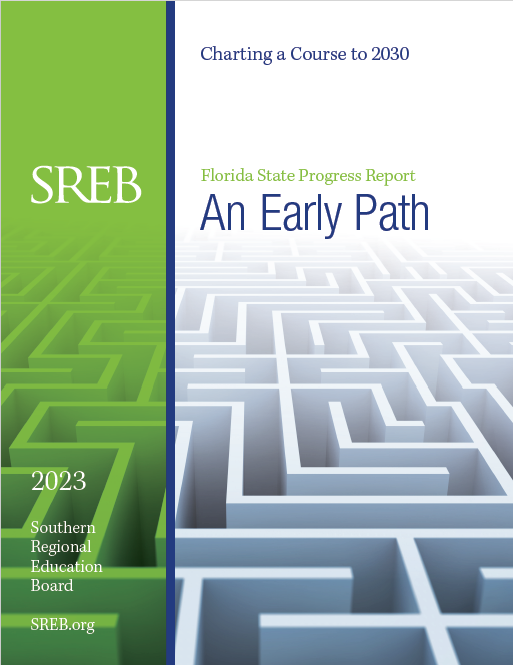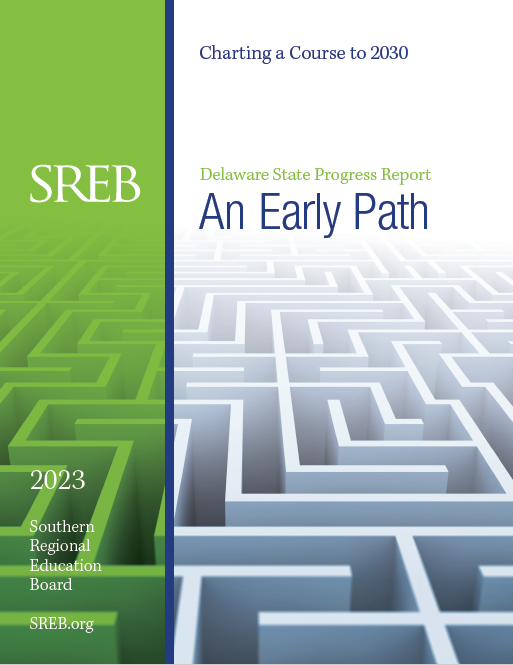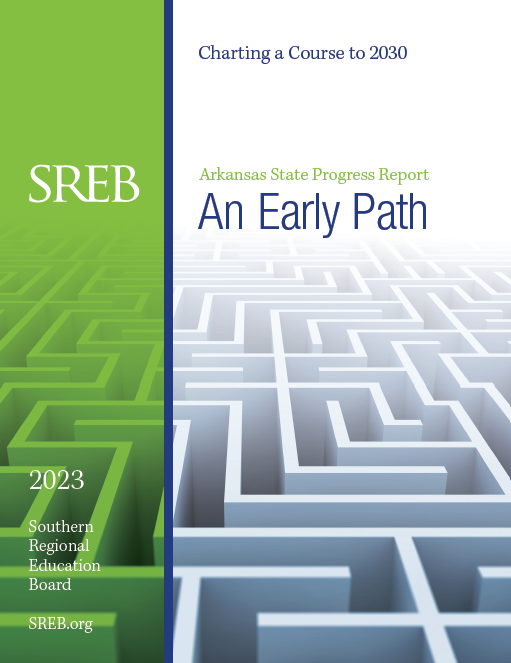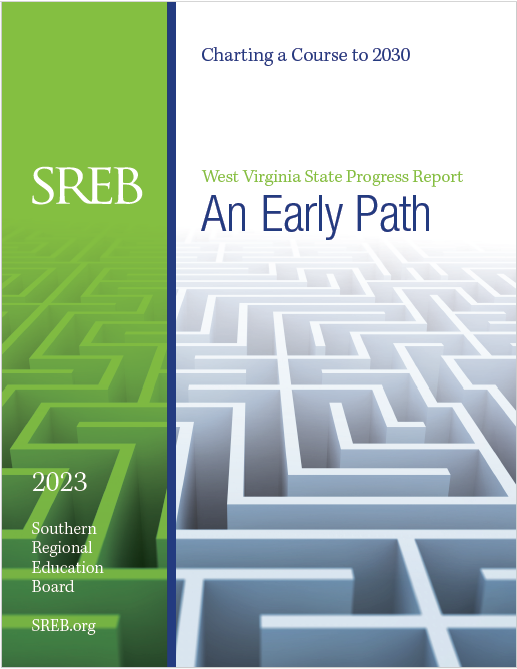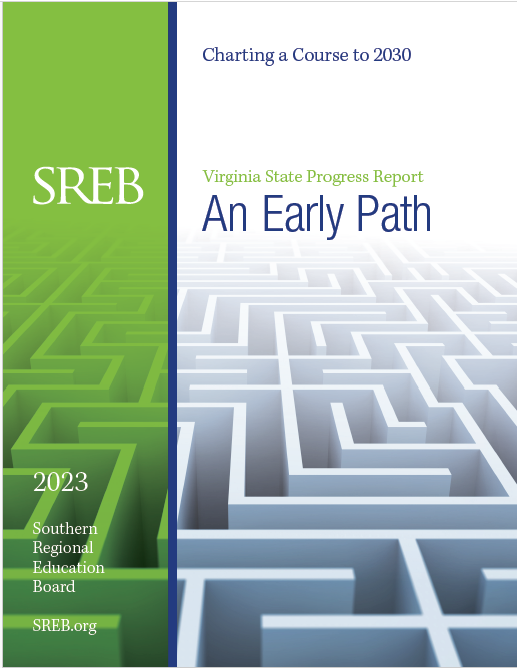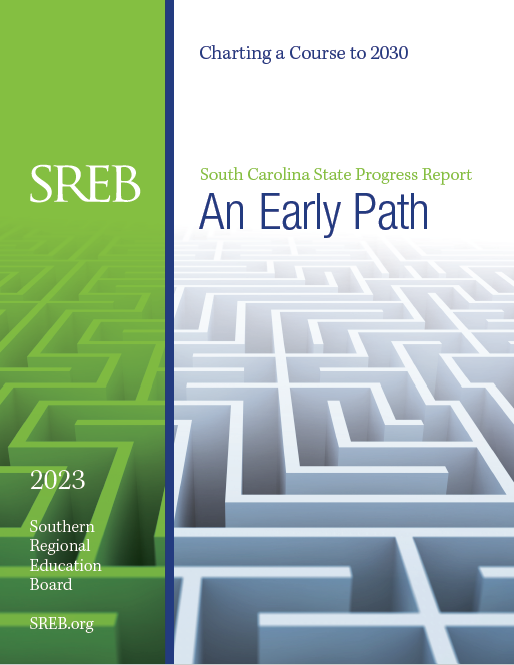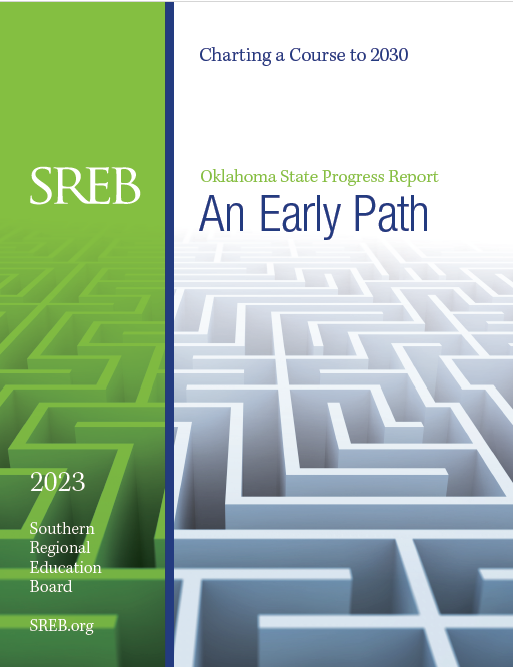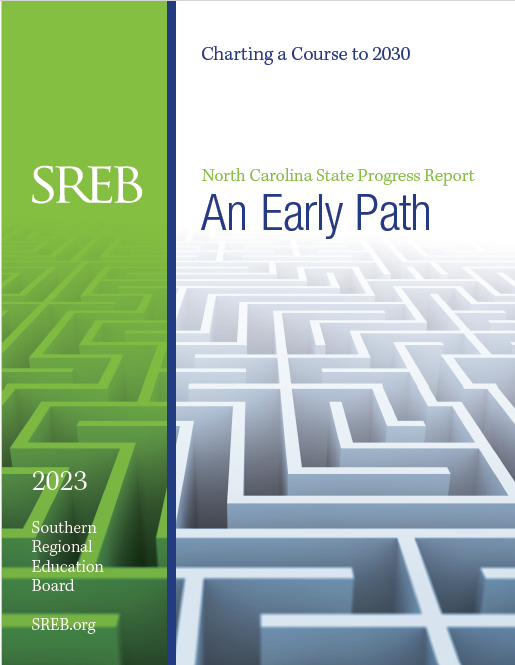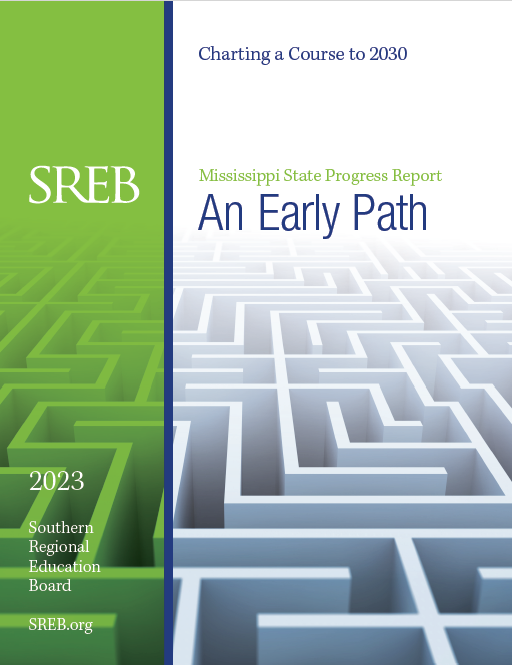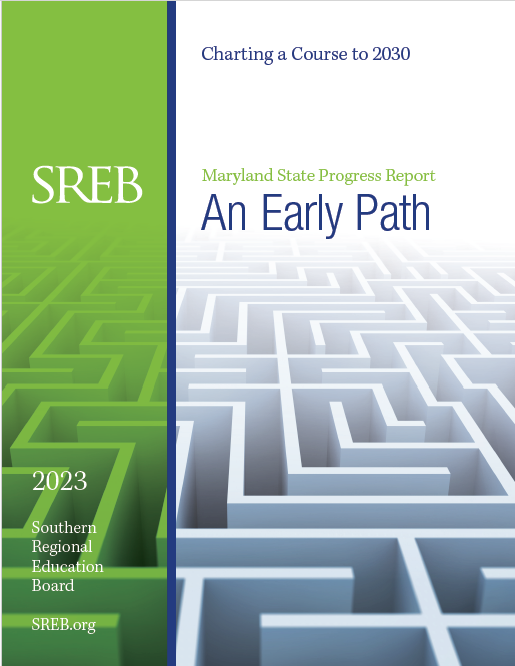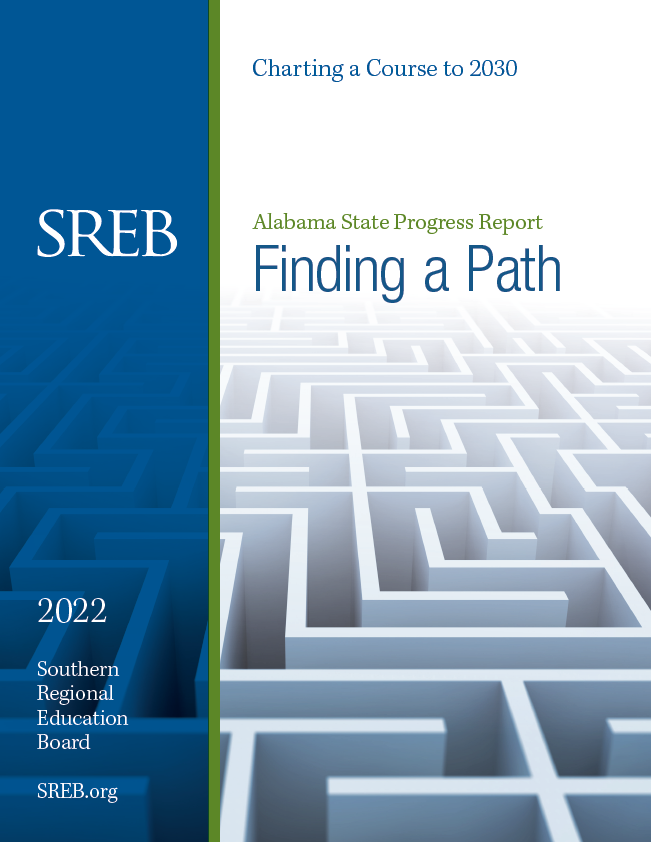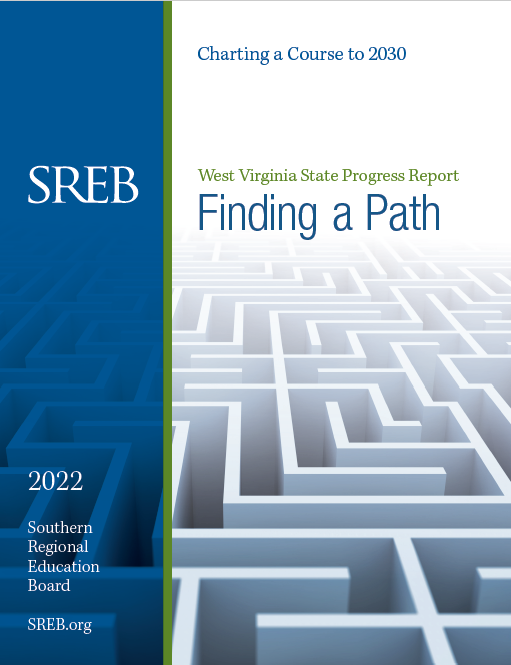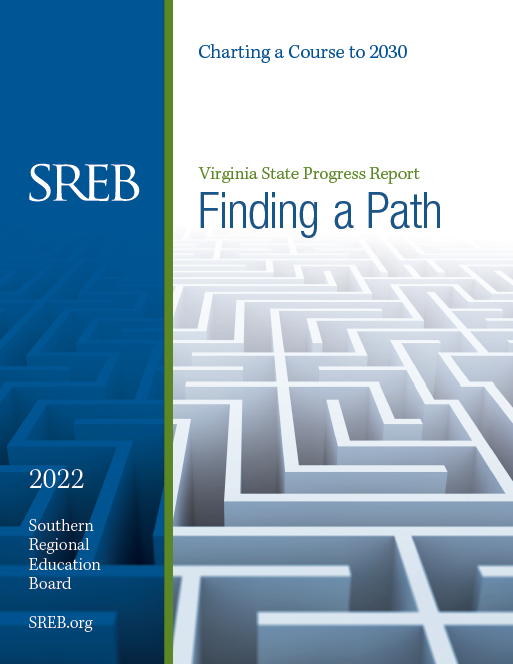Publications
The Skills Employers Demand
An Analysis of the Research
This report reviews the research on non-technical skills to identify the success skills employers most often seek. It summarizes relevant studies, skills gaps and credentialing to help policymakers, educators and businesses align efforts to prepare students for the workplace.
Louisiana: An Early Path
An Early Path covers data and policies for each SREB state in Pre-K, elementary and middle grades in 2023. The reports also highlight important demographic data. These are SREB’s 11th progress reports to states on educational progress and the final set for the 2020 Challenge to Lead Goals. Each state report provides comparable data so states can see how they relate to one another, the SREB region and the nation.
Kentucky: An Early Path
An Early Path covers data and policies for each SREB state in Pre-K, elementary and middle grades in 2023. The reports also highlight important demographic data. These are SREB’s 11th progress reports to states on educational progress and the final set for the 2020 Challenge to Lead Goals. Each state report provides comparable data so states can see how they relate to one another, the SREB region and the nation.
Georgia: An Early Path
An Early Path covers data and policies for each SREB state in Pre-K, elementary and middle grades in 2023. The reports also highlight important demographic data. These are SREB’s 11th progress reports to states on educational progress and the final set for the 2020 Challenge to Lead Goals. Each state report provides comparable data so states can see how they relate to one another, the SREB region and the nation.
Florida: An Early Path
An Early Path covers data and policies for each SREB state in Pre-K, elementary and middle grades in 2023. The reports also highlight important demographic data. These are SREB’s 11th progress reports to states on educational progress and the final set for the 2020 Challenge to Lead Goals. Each state report provides comparable data so states can see how they relate to one another, the SREB region and the nation.
Delaware: An Early Path
An Early Path covers data and policies for each SREB state in Pre-K, elementary and middle grades in 2023. The reports also highlight important demographic data. These are SREB’s 11th progress reports to states on educational progress and the final set for the 2020 Challenge to Lead Goals. Each state report provides comparable data so states can see how they relate to one another, the SREB region and the nation.
Arkansas: An Early Path
An Early Path covers data and policies for each SREB state in Pre-K, elementary and middle grades in 2023. The reports also highlight important demographic data. These are SREB’s 11th progress reports to states on educational progress and the final set for the 2020 Challenge to Lead Goals. Each state report provides comparable data so states can see how they relate to one another, the SREB region and the nation.
West Virginia: An Early Path
An Early Path covers data and policies for each SREB state in Pre-K, elementary and middle grades in 2023. The reports also highlight important demographic data. These are SREB’s 11th progress reports to states on educational progress and the final set for the 2020 Challenge to Lead Goals. Each state report provides comparable data so states can see how they relate to one another, the SREB region and the nation.
Virginia: An Early Path
An Early Path covers data and policies for each SREB state in Pre-K, elementary and middle grades in 2023. The reports also highlight important demographic data. These are SREB’s 11th progress reports to states on educational progress and the final set for the 2020 Challenge to Lead Goals. Each state report provides comparable data so states can see how they relate to one another, the SREB region and the nation.
Texas: An Early Path
An Early Path covers data and policies for each SREB state in Pre-K, elementary and middle grades in 2023. The reports also highlight important demographic data. These are SREB’s 11th progress reports to states on educational progress and the final set for the 2020 Challenge to Lead Goals. Each state report provides comparable data so states can see how they relate to one another, the SREB region and the nation.
Tennessee: An Early Path
An Early Path covers data and policies for each SREB state in Pre-K, elementary and middle grades in 2023. The reports also highlight important demographic data. These are SREB’s 11th progress reports to states on educational progress and the final set for the 2020 Challenge to Lead Goals. Each state report provides comparable data so states can see how they relate to one another, the SREB region and the nation.
South Carolina: An Early Path
An Early Path covers data and policies for each SREB state in Pre-K, elementary and middle grades in 2023. The reports also highlight important demographic data. These are SREB’s 11th progress reports to states on educational progress and the final set for the 2020 Challenge to Lead Goals. Each state report provides comparable data so states can see how they relate to one another, the SREB region and the nation.
Oklahoma: An Early Path
An Early Path covers data and policies for each SREB state in Pre-K, elementary and middle grades in 2023. The reports also highlight important demographic data. These are SREB’s 11th progress reports to states on educational progress and the final set for the 2020 Challenge to Lead Goals. Each state report provides comparable data so states can see how they relate to one another, the SREB region and the nation.
North Carolina: An Early Path
An Early Path covers data and policies for each SREB state in Pre-K, elementary and middle grades in 2023. The reports also highlight important demographic data. These are SREB’s 11th progress reports to states on educational progress and the final set for the 2020 Challenge to Lead Goals. Each state report provides comparable data so states can see how they relate to one another, the SREB region and the nation.
Mississippi: An Early Path
An Early Path covers data and policies for each SREB state in Pre-K, elementary and middle grades in 2023. The reports also highlight important demographic data. These are SREB’s 11th progress reports to states on educational progress and the final set for the 2020 Challenge to Lead Goals. Each state report provides comparable data so states can see how they relate to one another, the SREB region and the nation.
Maryland: An Early Path
An Early Path covers data and policies for each SREB state in Pre-K, elementary and middle grades in 2023. The reports also highlight important demographic data. These are SREB’s 11th progress reports to states on educational progress and the final set for the 2020 Challenge to Lead Goals. Each state report provides comparable data so states can see how they relate to one another, the SREB region and the nation.
Alabama: An Early Path
An Early Path covers data and policies for each SREB state in Pre-K, elementary and middle grades in 2023. The reports also highlight important demographic data. These are SREB’s 11th progress reports to states on educational progress and the final set for the 2020 Challenge to Lead Goals. Each state report provides comparable data so states can see how they relate to one another, the SREB region and the nation.
Alabama: Finding a Path
Finding a Path covers data and policies for each SREB state’s progress in high school, postsecondary and the workforce. Watch for reports on birth to middle grades in 2023. These are SREB’s 10th biennial reports to states on educational progress and the final set for the 2020 Challenge to Lead Goals. They provide comparable data so states can see how they relate to one another, the Southern region and the nation. New this year: sections on the K-12 teacher and postsecondary workforces.
WEST VIRGINIA: FINDING A PATH
Finding a Path covers data and policies for each SREB state’s progress in high school, postsecondary and the workforce. Watch for reports on birth to middle grades in 2023. These are SREB’s 10th biennial reports to states on educational progress and the final set for the 2020 Challenge to Lead Goals. They provide comparable data so states can see how they relate to one another, the Southern region and the nation. New this year: sections on the K-12 teacher and postsecondary workforces.
VIRGINIA: FINDING A PATH
Finding a Path covers data and policies for each SREB state’s progress in high school, postsecondary and the workforce. Watch for reports on birth to middle grades in 2023. These are SREB’s 10th biennial reports to states on educational progress and the final set for the 2020 Challenge to Lead Goals. They provide comparable data so states can see how they relate to one another, the Southern region and the nation. New this year: sections on the K-12 teacher and postsecondary workforces.


